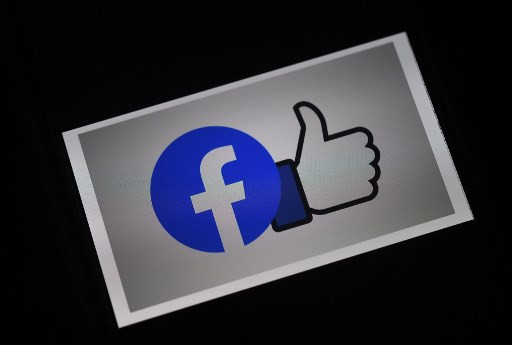Popular Reads
Top Results
Can't find what you're looking for?
View all search resultsPopular Reads
Top Results
Can't find what you're looking for?
View all search resultsSeeking civility in groups as views clash on Facebook
The creator of the private Facebook group by that name faces the challenge of keeping conversation civil at a social network criticized as a cauldron of toxicity.
Change text size
Gift Premium Articles
to Anyone
A
s division roils the country ahead of the US presidential election, Justine Lee is out to "Make America Dinner Again" and foster understanding in the process.
The creator of the private Facebook group by that name faces the challenge of keeping conversation civil at a social network criticized as a cauldron of toxicity.
MADA was started when Lee, who lives in New York's Bronx borough, and a friend were stunned by the outcome of the 2016 presidential election and began holding dinner parties to bring together people with opposing political viewpoints.
The dinners caught on. After the coronavirus pandemic struck and prevented face-to-face gatherings, MADA went virtual with a Facebook group.
The group has not shied away from hot-button discussion topics including race, police brutality and abortion.
While Facebook relies on automated systems and user reports to filter out unacceptable vitriol, groups have human moderators who can reject posts or turn off comments if discussions go off the rails.
Rather than Facebook or its chief Mark Zuckerberg deciding what is acceptable, groups outline their own standards.
"It is clear that these are the norms that we've agreed to as a group, and if you don't agree with them or you can't adhere to them, you're out," Lee said.
"I feel like the rest of the internet is just too big to be like that."
MADA has around 850 members and a dozen moderators - six of them politically left-leaning and six right-leaning.
Facebook -- which with more than 2.7 billion monthly users is the leading social network -- has been trying to shake off its image as a dangerously sprawling platform by emphasizing private communications and small groups.
"As the world gets bigger and more connected, we need that sense of intimacy more than ever," Zuckerberg said when announcing a tactical shift last year.
"That's why I believe the future is private."
Facebook doesn't place ads in groups, but data collected in public groups is used to recommend content and target ads elsewhere on the platform.
MADA hosted a virtual watch party this week for the first US presidential debate between Donald Trump and Joe Biden. Lee helped moderate.
"When things got a little bit tense, we invited people to use 'gifts' and emojis to lighten the mood a bit and express what they were feeling rather than their words," Lee said.
Even with flashpoint topics, group conversations often benefit from members having bonded over children, pets, hobbies and other shared interests or adversities, according to Lee.
After seeing the rampant anxiety caused by Covid-19, Australian doctor Catherine Barrett launched The Kindness Pandemic.
The group, which focuses particularly on acts of kindness between generations, has grown to more than 500,000 members.
"People join our group to create a better world," said Barrett, with a drawing of a heart decorating a refrigerator behind her during a video call.
"That sounds lofty, but it's really where it comes from. Our group has a very low tolerance for unkindness."
Facebook just added software tools for group administrators, such as automatically flagging specified words or barring members from posting until they have been in a group for awhile.
Posts shared to spark group discussions typically must be pre-approved by moderators.
"I don't enjoy Facebook because I think people have been really negative," Barrett said of the broader social network.
"I think people in our group appreciate the fact it is not toxic."
Facebook and others have grappled with how to purge vile content from online platforms without stifling free expression.
Facebook this week said it is raising the profile of member groups, hoping people with different views will find common ground there.
"Groups are allowing people to engage with very different perspectives and backgrounds," Fidji Simo, head of Facebook App, told AFP.
"It's something we can use now more than ever."
Facebook this month is marking the 10th anniversary of groups, which were growing in popularity even before the pandemic made online socializing a cultural norm.
They are now used by more than 1.8 billion people monthly.
Groups have surged for several reasons, including support for the Black community as the United States faces a reckoning on race and police brutality.
According to Simo, groups devoted to quirky pandemic trends and light-hearted content have also grown during the health crisis.
But Jennifer Grygiel, an assistant professor of communications at Syracuse University, said she worries that promoting groups might further drown out the free press ahead of a crucial election.
"The timing is so off," Grygiel said. "This is risky."










